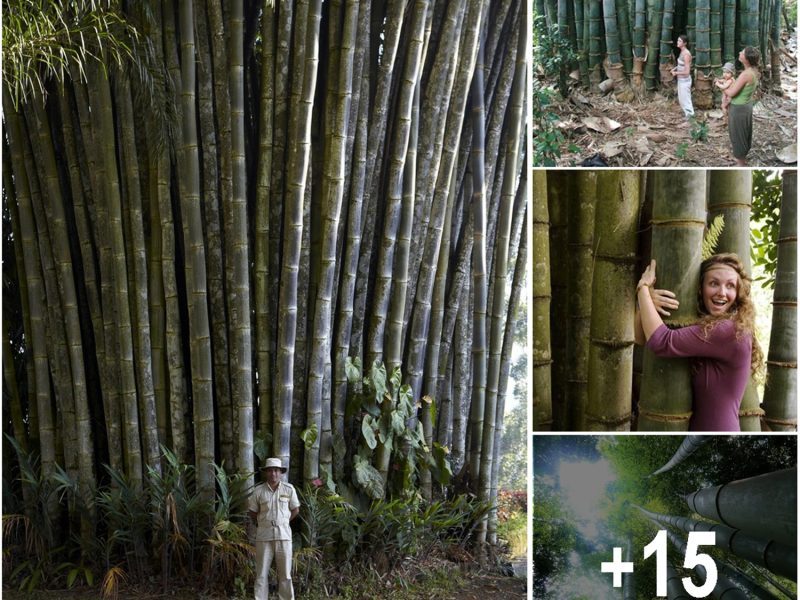The Black-headed Gonolek (Laniarius erythrogaster) is a captivating bird species that inhabits the diverse landscapes of Africa. With its distinct coloration and unique behaviors, this bush-shrike has caught the attention of bird enthusiasts and researchers alike. In this article, we will explore the natural habitats, behavioral characteristics, and the intriguing call of the Black-headed Gonolek.
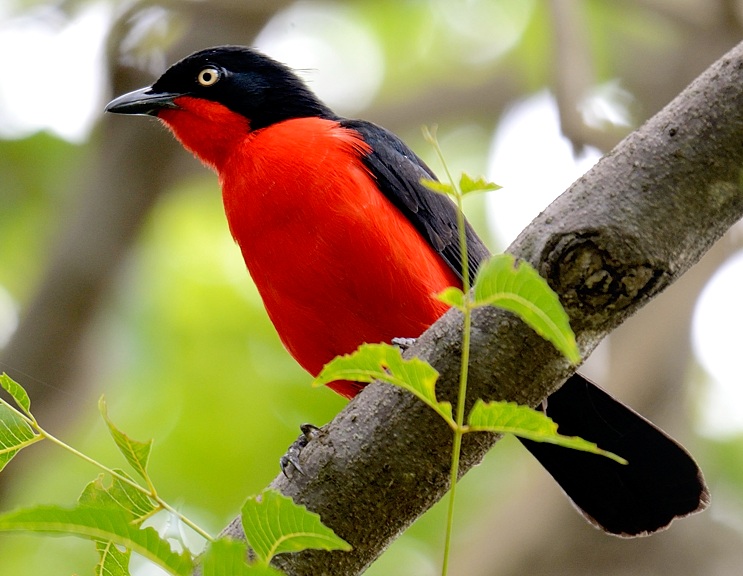
The Black-headed Gonolek can be found in several African countries, including Burundi, Cameroon, Central African Republic, Chad, Democratic Republic of the Congo, Eritrea, Ethiopia, Kenya, Nigeria, Rwanda, South Sudan, Sudan, Tanzania, and Uganda. It thrives in a variety of habitats such as dry savannas, subtropical or tropical moist shrublands, and seasonally wet or flooded lowland grasslands. This adaptability allows the species to survive and flourish in diverse ecological settings.
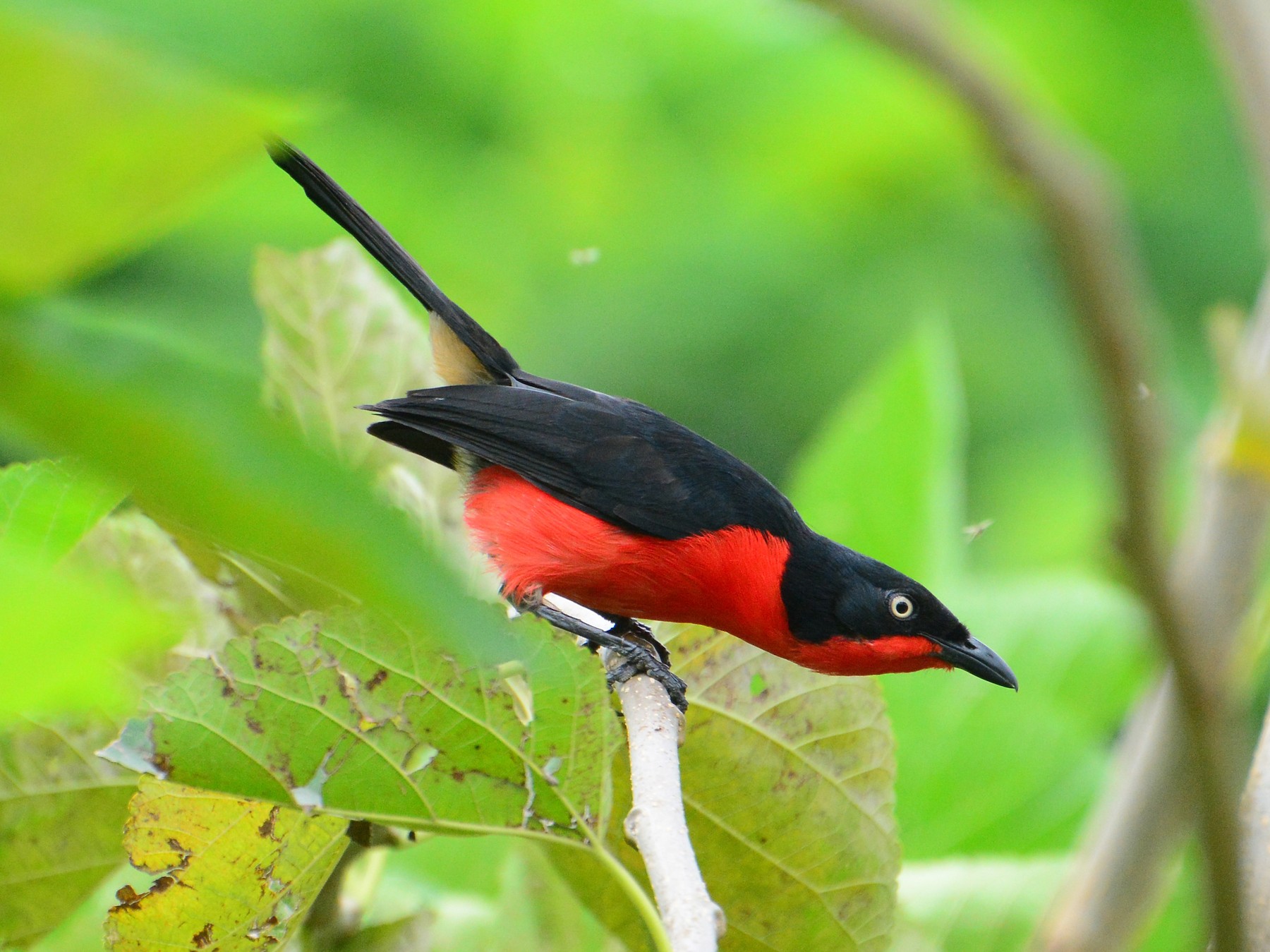
One cannot overlook the striking appearance of the Black-headed Gonolek. It showcases a unique combination of colors, with a black head and a red-toned neck, contrasting with a yellow-orange chest and abdomen, and a blue back. While generally shy and retiring, this bird often displays bolder behavior when in close proximity to human habitation or in garden settings. Such boldness provides a remarkable opportunity for bird enthusiasts to observe and appreciate its beauty.
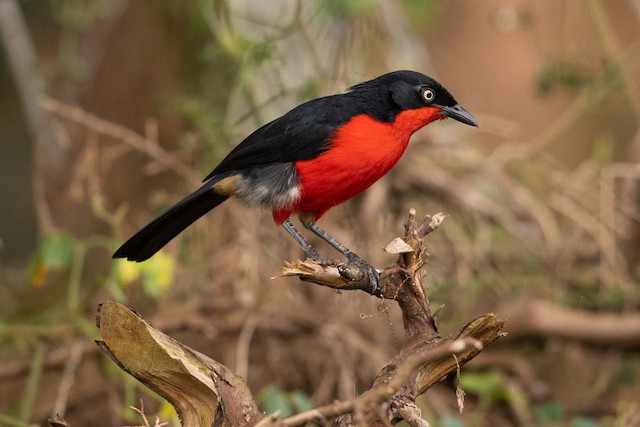
The Black-headed Gonolek is known for its fascinating vocalizations. The male emits a loud, clear, bell-like call, which is quickly followed by a harsh grating response from the female. This synchronized duet creates a captivating auditory experience and serves as a means of communication between mating partners. The intricate nature of their vocalizations further adds to the allure of this extraordinary species.

As with many bird species, the Black-headed Gonolek faces various conservation challenges. The destruction of its natural habitats due to human activities, including deforestation and land degradation, poses a threat to its population. Additionally, climate change and the associated alterations in ecosystems may impact its breeding and foraging patterns. Efforts are being made to raise awareness about the importance of protecting the habitats where this species resides and implementing conservation measures to ensure its long-term survival.
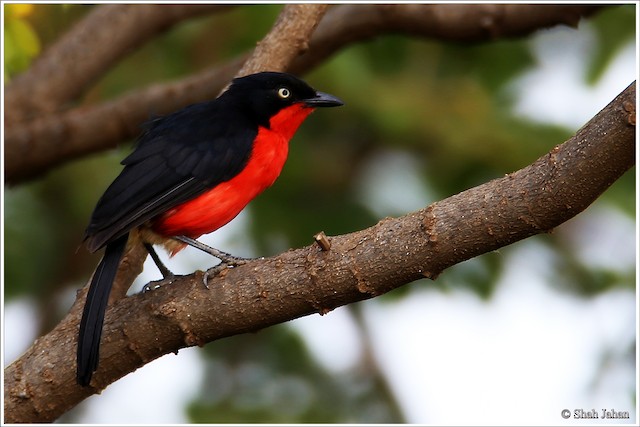
The Black-headed Gonolek, with its distinct coloration, captivating behaviors, and enchanting vocalizations, remains an emblematic bird of Africa’s savannas. Its ability to adapt to various habitats reflects the resilience of nature’s wonders. By appreciating and safeguarding the habitats in which it thrives, we can contribute to the preservation of this remarkable species and the biodiversity of our planet.
